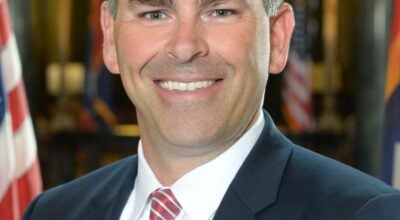Schizophrenic governments
Published 12:37 pm Wednesday, April 4, 2018
It is estimated that at least one-third of the homeless in the United States suffer from some form of serious mental illness. Schizophrenia, paranoia, and bipolar disorder are the most commonly cited.
Similarly, local, state, and federal authorities’ responses to the homeless problem in our country appear to reveal serious schizophrenic tendencies by elected officials and policymakers at each level of government.
In December 2017, according to the Los Angeles Fire Department, an illegal cooking fire in a large homeless encampment in the Skirball area burned hundreds of acres, closing I-405, destroying six homes and damaging 12 in the toney Bel Air section of LA.
In prosperous Orange County, Cali. a news crew captured a shocking scene–wall-to-wall tents and makeshift shelters lining each shoulder of a narrow county road for miles and miles, creating a tunnel effect. Trash, garbage, clothing, and human detritus spilled from the tents onto the road in places, contaminating the area with human excrement, bodily fluids and hypodermic needles.
Orange County officials recently removed these squatters and proposed three “tent cities” in the county. In last Saturday’s Wall Street Journal, reporter Ian Lovett describes the uproar and protests of thousands of citizens in the county who live near the proposed “tent cities.” Lovett quoted the school board president in Santa Ana, Cali., where homeless camps already dot the sidewalks, as saying “We’ve taken the brunt. Our kids can’t use the libraries. Our kids go to school in the morning, and somebody is sleeping in front of our schools.”
A Feb. 20, 2018 article in The Daily Wire cites an NBC News study of the dangerous filth covering sidewalks in much of downtown San Francisco. NBC’s investigative team surveyed 153 blocks and found “large heaps of garbage, food and discarded junk,” as well as “100 drug needles and more than 300 piles of human feces” throughout downtown.
The article cites Dr. Lee Riley, an infectious disease expert at UC Berkeley as saying, “If you do get stuck with these disposed needles, you can get HIV, Hepatitis C or B, and a variety of other viral diseases.” Dr. Riley added that “If you happen to inhale that, it can also go into your intestine.”
It’s unclear who first said “a country that cannot control its borders is not a country,” but it’s been repeated often in the current national debate on immigration.
Let me suggest a corollary: A government that cannot prevent its people from living and performing bodily functions on public sidewalks, streets and roads is no government at all.
How did it come to this? As with so many issues that plague our country today, it began in the federal courts with numerous decisions exalting individual rights over society’s. In the Papachristou decision in 1972 and Kolander vs. Lawson in 1983, the U.S. Supreme Court overturned Florida and California vagrancy and loitering laws.
This same lionization of individual rights led to the wholesale closing of state and private asylums and mental institutions in the 1960s and 70s. Mainstreaming the mentally disturbed contributed to the burgeoning homeless population, which some experts estimate to be more than a half-million in the U.S. today, with an estimated 50,000 living on the streets of LA and over 60,000 in New York City.
Local and state governments seem to favor the rights of the homeless over the rights of other citizens and society. Suppose a restaurant in downtown Los Angeles instructed its customers to “use the bathroom outside on the sidewalk.” What if this same restauranteur kept garbage in his kitchen and tossed his cooking grease into the back alley?
The City of Los Angeles would shut the restaurant, fine and possibly jail the owner. It would do the same to a homeowner who uses his sidewalk and street as a toilet, bordello and drug-shooting gallery.
And it should, because we are a country of laws. So why are the homeless allowed to block sidewalks and roadways and use them as bathrooms, and at times terrorize and intimidate passers-by?
There should be sympathy, compassion, and help for the homeless. Their plight tugs at the heartstrings. But they should not be allowed to endanger the health and safety of others.
Michael Henry writes in Oxford, Miss., and can be reached at mhenryauthor@gmail.com.





